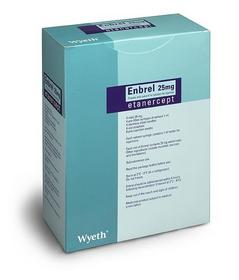How Can a Drug that Causes Leukemia, TB, and Listeria Remain on the Market?
In 1998, the FDA approved a new class of anti-inflammatory drugs called TNF-alpha blockers. The best-known drugs in this class are Enbrel and Humira, which are used to treat juvenile rheumatoid arthritis, Crohn’s disease, and other inflammatory diseases. But these drugs have dangerous side effects. In 2008, 2009, and 2011, the FDA determined that these drugs increase the risk of different—but all potentially fatal—infections and cancers, including tuberculosis and childhood leukemia. Despite all their well-documented dangers, as of 2013, TNF blockers remain on the market. The FDA has simply asked manufacturers of TNF blockers to let them know when someone got cancer—essentially taking a “wait and see” approach to a drug that has caused at least thirty-five deaths from cancer, at least fourteen deaths from Legionnaire’s Disease, and at least seven deaths from listeria infections. Over fifty people have died, and the FDA is still at the “information-gathering” stage.




